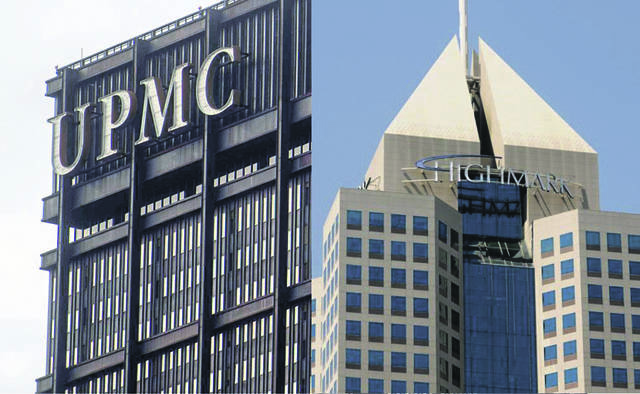A judge ruled Wednesday that Attorney General Josh Shapiro cannot delay this summer’s looming breakup of rivals UPMC and Highmark, starting the clock on an 88-day countdown until thousands of seniors, cancer patients, and people with disabilities will no longer have affordable access to most UPMC doctors and hospitals.
Commonwealth Court Judge Robert Simpson said the June 30 expiration of an agreement between the Pittsburgh-based health systems is an “unambiguously and material term of the consent decree,” and therefore cannot be changed or extended indefinitely. The ruling reinforced a state Supreme Court decision issued last summer.
“Because the (Office of Attorney General) does not plead fraud, accident or mistake, this Court lacks the power or authority to modify the termination date of the Consent Decree without the consent of the parties, even if it were in the public interest to do so,” Simpson wrote in a 45-page opinion filed in Commonwealth Court on Wednesday morning.
But the judge stopped short of dismissing Shapiro’s legal petition altogether.
Simpson said Shapiro does have the right to seek to alter the agreement for the public good. The judge also denied or deferred several other objections raised by UPMC.
Shapiro plans to appeal to the state Supreme Court.
Shapiro spokesman Joe Grace emphasized that Simpson ruled the expiration date could not be extended — but “not that such a modification was barred.”
“This enables our office to quickly appeal to the Supreme Court, which we will do in short order given the impending scheduled expiration date,” Grace said by email Wednesday. “As this complex legal process plays out, Attorney General Shapiro will continue fighting for the best interest of patients, payers and the public in Western Pennsylvania and uphold their access to the health care facilities they have contributed to building.”
UPMC declined to comment beyond saying that it agrees with Simpson’s ruling.
Separately, UPMC is suing to block Shapiro’s effort in federal court.
Highmark spokesman Aaron Billger said the ruling “does not change Highmark’s support of the Pennsylvania Attorney General’s legal actions focused on doing what’s best for the community.”
What Shapiro wants
Shapiro filed a legal petition in early February seeking the court’s permission to rewrite a 2014 consent decree between Highmark and UPMC.
Among other demands, Shapiro asked UPMC hospitals and doctors to accept Highmark patients “in perpetuity” and drop a controversial prepay rule threatening to impact thousands of Highmark-insured Medicare Advantage patients and cancer patients when it takes effect in July.
In his opinion, Simpson found that the Attorney General’s Office does have authority to modify the consent decree in the name of public interest, despite objections raised by UPMC, Senate GOP leaders and the Hospital and Healthsystem Association of Pennsylvania that Shapiro is overstepping his bounds.
“Further, while UPMC contests the propriety and scope of the requested modifications, in light of the broad language of the Consent Decree’s modification provision, we decline to dismiss (Shapiro’s) Petition at this early stage of the proceeding,” Simpson wrote.
The judge said Shapiro was not required to obtain approval from the state health and insurance departments to file the petition, as UPMC had claimed.
Under the 2014 consent decree, Highmark-insured patients will become out-of-network at most UPMC hospitals on July 1.
UPMC further plans to enforce a new rule that requires out-of-network patients to obtain a cost estimate and prepay, in full, for all non-emergency services before receiving treatment. Highmark has asked UPMC to reconsider the rule and called it “unnecessary.”
Shapiro’s initial 73-page petition is posted on the Attorney General’s website.








